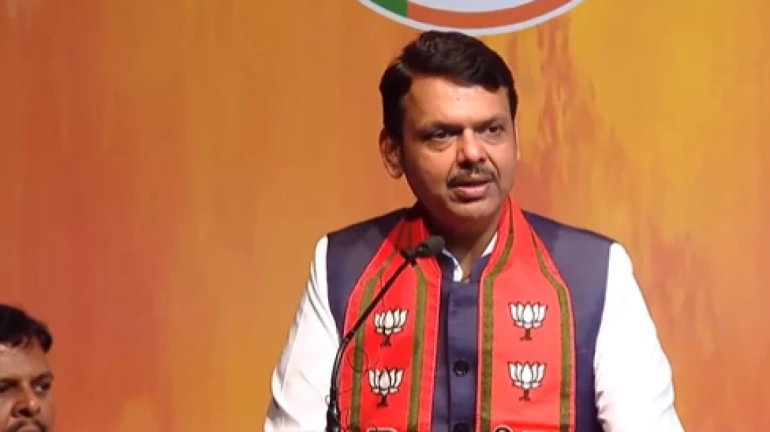
Devendra Fadnavis, the 54-year-old 21st chief minister of Maharashtra, is dealing with a number of issues that will severely strain his administrative abilities.
The first thing he will need to do is bring back two major projects that the previous Uddhav Thackeray administration abandoned. Initially, the Saudi oil giant ARAMCO invested in a INR 3 lakh billion oil refinery and petrochemical project near Nanar, which was later moved to Barsu in the Konkan area. A significant boost to the state's economy would have come from this massive investment. On the grounds of the environment, however, Uddhav Thackeray's MVA government blocked it.
At a cost of INR 1.12 trillion, the French giant Areva was eager to implement the other project, the Jaitapur atomic power project. It was intended to be the largest nuclear power plant in the world, with a capacity of 9,900 MW. Despite the massive benefits that would have resulted from this endeavour, the MVA also answered "nakko" (No). On the one hand, the MVA was criticising big projects that were headed to Gujarat while simultaneously halting massive projects in Maharashtra.
Reviving these two projects would be Fadnavis' responsibility. The local residents will undoubtedly become agitated due to the opposition. Here, gaining the support of the community will require the new CM to employ their negotiating talents.
The state must pay back INR 2.75 lakh crores of its INR 7.82 lakh crores total public debt over the next seven years. The state is second only to Tamil Nadu in terms of public debt, although it leads in terms of foreign direct investment (FDI). Populist programs like Ladki Bahin, which cost more than INR 40,000 crores to implement, have significantly increased the state's financial burden. The wage bill for its ineffective and bloated bureaucracy is expected to reach INR 1.59 lakh crore within the next three months. Interest payments are anticipated to increase to INR 56,727 crore, while the pension burden will be INR 74,011 crores. Financial discipline will require Fadnavis to make difficult choices.
Only seven of Maharashtra's 36 districts make a substantial contribution to the state's GDP, despite the fact that it is thought of as a developed state. According to the World Bank, which approved a loan of 188.28 million dollars for the state earlier this week, these seven districts account for more than half of the state's 500 billion dollar GDP.
Addressing the severe water shortage in the majority of the state will be the other difficulty. The groundbreaking Jalyukt Shivar Yojana, which Fadnavis had begun to implement, was abandoned by the MVA government. It was anticipated that the program's provision of rainwater collection would alleviate water scarcity in 5,000 villages annually. The effectiveness of this ambitious effort, which was supposed to drought-proof Maharashtra, has been questioned on a number of occasions. The initiative has produced 24,000 cubic meters of water storage with 3.4 million hectares of potential for irrigation, according to the Centre for Science and Environment in Delhi.
According to a report from the Centre, it is just enough to provide 487 people with water for an entire year calculated as per the 135 per capita per day norm.
The Gosikhurd irrigation project in Vidarbha, which has an annual irrigation potential of 2,50,800 hectares, needs to be completed as a top priority for Fadnavis. The deadline was extended for the sixth time, and it has been a work in progress for the last 40 years. As of right now, June 2026 is the anticipated completion date. In addition to ending the recent wave of farm suicides, this project has the potential to significantly increase agricultural income for millions of farmers. More than 14,000 farmers have taken their own lives, accounting for 37.6% of all farmer suicides nationwide. Since the CM is from Vidarbha, he has an additional duty to see that the project is finished as soon as possible.
On the basis of fictitious scheduled tribe certificates, more than 11,000 state government employees were hired. The government is not taking criminal action against these officials who have denied eligible ST candidates government jobs, notwithstanding an injunction from the Supreme Court. As a matter of fact, the government has been lenient with these criminal personnel. All of these individuals should face criminal charges for forgery if Fadnavis wants to provide a clean administration.





